Articles by Adam Zaki
Adam is a Reporter from Long Island and graduate of Brooklyn College.
Q & A with Ryan McCurry of ACHWorks About the Future of Small Business Lending
February 22, 2022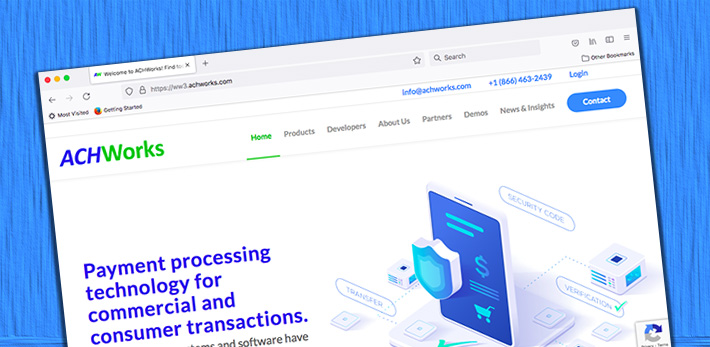 In a recent chat, deBanked talked with Ryan McCurry, President of ACHWorks. McCurry discussed the future of his company, payments, small business financing, and the impact of digital assets on the industry.
In a recent chat, deBanked talked with Ryan McCurry, President of ACHWorks. McCurry discussed the future of his company, payments, small business financing, and the impact of digital assets on the industry.
Q (Adam Zaki): Your company recently announced an acquisiton. How does this move help take ACHWorks to where the company wants to go?
A (Ryan McCurry): We are excited to share that ACHWorks was acquired by VeriCheck Inc. on December 31, 2021. VeriCheck Inc. (VCI) is a wholly owned subsidiary of Commercial Bank of California (CBC), who has been one of ACHWorks’ sponsor banks for nearly 20 years.
The acquisition brings more resources, both in terms of staffing and capital to ACHWorks’ business efforts. Conversely, ACHWorks’ sales approach, market specializations and diverse technical capabilities will support VCI’s growth goals. By combining the teams and technology, we believe we will compound our benefits to reach an even higher level of success together.
The great news with this acquisition is that where ACHWorks was weak, VCI is strong. Likewise, ACHWorks has some unique technology and expertise that VCI hadn’t leveraged before and can now capitalize upon.
Furthermore, VCI relies heavily on partnerships with ISO’s and third party gateways for processing ACH payments with a high number of merchants across all sectors, whereas ACHWorks tends to specialize in a few verticals while maintaining direct sales and direct relationships with all merchants – even when the merchant is utilizing an integrated software partner.
Q: Are ACH payments here to stay? With so many ideas floating around in this space, what is the future of ACH?
A: The future of the ACH as a payment system is strong and growing quickly. In 2021, the ACH network grew by 29.1 billion payments valued at $72.6 trillion dollars. Same Day ACH grew by 74% over 2020 and total volume was up almost 9%, continuing a 7-year growth trend. Business-to-business ACH payments grew at a rate above 20% and 33% over the last two years, respectively.
We believe the ACH payments space is going to continue to grow and become a more widely used payment rail, and our acquisition is evidence of that growth.
Q: What is the biggest issue your company is currently overcoming?
A: There are always challenges facing the payments industry. Naturally, as a fintech industry, payments companies regularly face emerging technology, regulatory or legislative activity, and ongoing cybercrime.
Currently, our focus is blending the VCI and ACHWorks teams and evolution of our joint technology. We are pleased to share that VCI hired the entire ACHWorks operational team, and is retaining all of our existing technology and benefits to our clients. Bringing the two platforms and teams together will have exponential benefits for clients and partners moving forward.
Q: The small business financing industry is becoming less reliant on the traditional sales models. How will ACHWorks combat this? Will you help the funders/brokers innovate to help secure the current infrastructure or seek new tech clients that are stepping into the space?
A: There’s the old saying that change is the one constant. Initially, business finance companies only wanted ACH for reoccurring daily debits, and as merchant demographics changed weekly or custom payment frequencies have become more prevalent. However, now about half of our business finance clients use ACHWorks’ technology not just for debiting merchant receivables, but also for sending ACH Credits to merchants for funding a deal, automating syndication payments for participation rates or paying commissions to brokers.
Likewise, ACHWorks offered Same Day ACH capability to our clients on the first day it become available on the ACH Network. The use of Same Day ACH has been slowly increasing as funders utilize it both to fund merchants or to act on a merchants request to charge them today (most common on distressed accounts).
As the funder / broker relationship continues to evolve, ACHWorks will be there to help facilitate the movement of the funds. We hope to leverage our unique status of being owned by a bank to bring new technologies to the business finance industry and other spaces that are under-supported by traditional payment processors. We are excited for these new capabilities to come and will keep the deBanked community updated as we have more to share.
Q: There seems to be a lot of payments companies across fintech. The elephant in the room at Money 20/20 in October was the ‘payments bubble’ taking place. What is your take on this? Is fintech looking too much into payment processing innovation?
A: Automobiles have been around for about 140 years, and yet innovation continues to happen. They have seen the switch from steam to electric, to internal combustion and back to electric. Computer technology has only been common in business usage since the 50’s and the internet has only been heavily used since the late 90’s. When I started in this business, we used to mail our software to clients on a series of 14 floppy disks. I would argue that the innovation and evolution of payments and fintech is only in its infancy.
As technology continues to permeate all walks of life, we expect to see payments leveraged to make commerce more organic with far less friction. Most payment processors I speak with feel that we are the original “fintech” and that the newly emerging “fintech” market is just utilizing the infrastructure we put in place.
Q: Are cryptocurrencies a topic of conversation in your office? Blockchain tech offers major benefits in the payments world. Do you or your company have any thoughts on how this could be leveraged?
A: You can’t escape crypto, it invades all conversations these days. However, our focus is on working with fiat currency and regulated payment channels because we process ACH payments through the Federal Reserve utilizing State or Nationally chartered banks. Don Singer, the CEO of VCI and I were discussing this topic previously, and he told me crypto is the new shiny sports car, or personal aircraft, but we work on the rail road. ACH is not as sexy as crypto, but it moves nearly all of the money in the U.S. Those debit card, credit card, Venmo, Zelle and real time payments systems are just the messaging systems, the money is being moved later that day, and it’s being moved via ACH.
Bitty Advance’s New Suite
February 22, 2022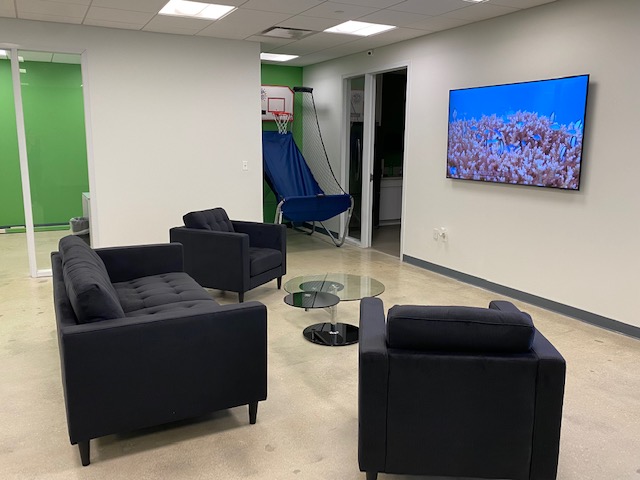 Bitty Advance hopes that an enticing in-person environment will bring people back to the office. As part of that, the company recently moved into a new space.
Bitty Advance hopes that an enticing in-person environment will bring people back to the office. As part of that, the company recently moved into a new space.
“We want to give our team both the flexibility of working from home and having a premier office space for collaboration,” Bitty Principal and CEO Craig Hecker told deBanked. “…making our space open and dynamic, with comfortable couches, TVs, and relaxed meeting areas was important, we are also incorporating fun things like resting areas and table tennis to promote wellness and engagement.”
The new office is immediately adjacent to Dania Pointe, a 102-acre premier mixed-use development with almost one million square feet of retail and restaurants, luxury offices, hotels, luxury apartments, and public event space.
Bitty is seeking to acquire tech talent in many areas as they expand platform offerings for their white-label application intake process, affiliate online checkout referral page, payment processing & management interface, and self-service customer portal.
“Bitty is a tech company first. All of our focus is on utilizing technology to revolutionize the MCA space,” said Hecker.
Pick a Niche or Go Far and Wide? SMB Financiers Weigh in
February 18, 2022 As big tech continues to pave the way for new avenues for providing capital for small businesses, the legacy infrastructure in place has their own ideas of how to compete in funding a digitally native business owner. While some say that the strength is in finding a niche, others disagree— claiming that the key is to expand business, avoiding a one-dimensional aspect of funding. On top of this, some commercial finance brokers even claim that an ability to handle digital assets will give them an advantage over a larger tech company, too.
As big tech continues to pave the way for new avenues for providing capital for small businesses, the legacy infrastructure in place has their own ideas of how to compete in funding a digitally native business owner. While some say that the strength is in finding a niche, others disagree— claiming that the key is to expand business, avoiding a one-dimensional aspect of funding. On top of this, some commercial finance brokers even claim that an ability to handle digital assets will give them an advantage over a larger tech company, too.
“Finding the niche as far as who you’re funding, and what type of deals you’re funding, will lead to continuing growth,” said Matt Rojas, Senior Lending Officer at Ironwood Finance. While Rojas believes the strength of a smaller brokerage is the ability to service a niche client, he expressed the idea that larger companies getting into the space are going too deep too quickly—resulting in an unsustainable rate of expansion.
“I see the biggest problem with the fly-by-night brokers, these bigger MCA shops that you’re seeing entice brokers to send the clients to them,” Rojas said. “I don’t see how that will sustain long term unless they continue to meet milestones to acquire their capital. I just had a merchant [get] bought out from our firm [by another funder] for over 40K plus, [but] their cash flow could only sustain an 18K MCA max. I’ll never understand how these firms are going to operate on a larger scale unless they are bought by the big firms.”
Other people in small business lending think that the strength is to offer a variety of financial products and options to give merchants choices. “The only way to keep up with the big boys of the industry is to simply just not be a one-trick pony,” said Juan Caban, Managing Partner at Financial Lynx. “Just like they are adapting into new markets and products, we as lenders and brokers need to also enhance our offerings.”
 While people like Caban are molding products based on the competitive flow of the industry, Rojas seems to believe the system will bleed the big players dry. “It’s my understanding that as a lender we don’t need to compete with each other on rates like you’re seeing,” Rojas said. “I believe they call this the cash burn stage.”
While people like Caban are molding products based on the competitive flow of the industry, Rojas seems to believe the system will bleed the big players dry. “It’s my understanding that as a lender we don’t need to compete with each other on rates like you’re seeing,” Rojas said. “I believe they call this the cash burn stage.”
“They’re going to burn as much cash to acquire clients,” Rojas continued. Then, the dominos fall. […] It’s like a story that paints itself over and over again. The same thing will happen to these bigger firms you mentioned due to the simple fact that their underwriting process doesn’t factor NSFs, non-repayments, or defaults.”
While Rojas focused on what the bigger companies are doing, Caban spoke on what brokers can do on the fly to adjust. He expanded on the idea of using old tactics in new ways, saying that traditional sales tactics may work if implemented with a well-researched and modern spin.
“Before cold calling, research and understand who your target market is and be prepared,” Caban said. “When cold calling, no one merchant has similar needs and goals. We need to ask the right questions, learn about the business, then find customized solutions that are in line with their financial needs and goals.”
A merchant will always appreciate a broker or lender who takes an interest in their business and find solutions that are in line with their goals rather than [their own] financial interests.”
Some brokers have gone outside of the box when it comes to how they will compete in the future of small business lending, saying that traditional currencies have been won over by big tech, and it’s digital assets that will open a brand new market for the next-generation small business lender.
“Since 2008, technology has changed a lot more than just the process in which small business owners find and acquire funding,” said Nicholas Saccone, Senior Funding Advisor at Proto Financial. “As you know, cryptocurrency is becoming more and more mainstream by the day with the Fed scrambling to get control over it. Whether you believe in crypto or not, it will [change] the way we see money.”
Saccone expressed that brokers who embrace learning about digital assets will not only be able to compete with large tech lenders, but beat them out.
“PayPal, DoorDash, and Square can make it easy for companies to secure fiat currency, but as crypto becomes more mainstream, brokers will fulfill a new role as they help educate clients on the new financial system that is upon us,” Saccone said. “It will be physically impossible for large tech companies to integrate crypto into their current systems without brokers doing the dirty work.”
“Mass adoption comes from the top down,” Saccone continued. “Digital collateral tokens, such as Flexa’s AMP, will change the payment processing industry forever. Transactions will become instant and it is my belief within the next ten years, merchants will be utilizing digital assets more than fiat cash.”
Wait, Was That Oz Konar On The Side Of That Bus?
February 16, 2022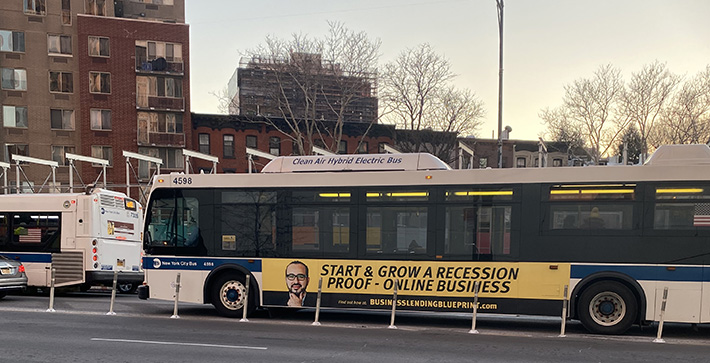 An MTA bus traveling past Barclays Center on Brooklyn’s Flatbush Avenue this week showcased an ad for Oz Konar’s Business Lending Blueprint, a popular industry loan-brokering school. With brokers increasingly trying to leverage social media by creating online personas that represent them and their businesses, it seems there is definitely a money-making opportunity in leveraging that image into the justification for a broker learning platform.
An MTA bus traveling past Barclays Center on Brooklyn’s Flatbush Avenue this week showcased an ad for Oz Konar’s Business Lending Blueprint, a popular industry loan-brokering school. With brokers increasingly trying to leverage social media by creating online personas that represent them and their businesses, it seems there is definitely a money-making opportunity in leveraging that image into the justification for a broker learning platform.
“Not long ago, that was me commuting on those buses and subways in New York City when I had a corporate job,” said Konar, when asked about what it means to him to have his face on the side of a bus. “I was in New York City one day and I said we need to increase the awareness of the potential, because I wish someone brought the opportunity to me back then.”
Konar believes that New York City commuters are a great target audience for his business lending blueprint. “It gets exhausting getting on an off those buses and subways and all that,” he said. “People are always thinking of ways to enhance their lives and their incomes.”
As remote and hybrid work situations have become incentivizing tools for landing employees in a labor-starved market, the idea of getting a ‘business in a box’ from a program like Konar’s is an opportunity that many jobseekers may find too good to pass up.
And it’s not just one bus doing a loop on Flatbush Avenue. Konar says his ad is plastered on 250 buses across the five boroughs of New York City.
“You’re not going to just figure it out on your own,” said Konar, when asked how accessible the idea of building a business centered around small business financing is for the everyday commuter. “Most people don’t even know the existence of this industry, they’re not thinking about it. They’re thinking about crypto, or an Amazon business, or no-money-down real estate investing, they’re not thinking about alternative lending. I think that’s the advantage.”
Konar’s got a pretty large following already. His guest appearance on a deBanked live stream last year was one of the most watched videos on deBanked in all of 2021, second only to an interview with Miami Mayor Francis Suarez.
You can watch Konar’s recent interview backstage at Broker Fair 2021 here.
Inflation is Impacting Merchants, and Capital Providers are Noticing
February 10, 2022 As the Department of Labor survey reported sky high inflation this week, the 7.5 percent rate is starting to impact the small business financing industry. With things like gas, food, electric, and oil leading the way in rising costs, merchants are requesting more capital, or none at all — as inflation continues to rise.
As the Department of Labor survey reported sky high inflation this week, the 7.5 percent rate is starting to impact the small business financing industry. With things like gas, food, electric, and oil leading the way in rising costs, merchants are requesting more capital, or none at all — as inflation continues to rise.
“I read that 45% of small businesses say they have dealt with inflation by taking out a loan over the past year,” said Ronald Curiel, Business Development Manager at Advantage Capital Funding. “Small businesses are the backbone of the U.S economy and a lot of businesses are relying more and more on small business financing to get them through times of high inflation.”
Small businesses have been forced to raise prices in many areas. Delis are adding surcharges to bacon, lunch deals are disappearing from pizza parlors, and delivery minimums are being raised. According to Curiel, the need for financing has gone hand-in-hand with the rise in inflation.
With payroll costs at a two-decade high and prices of goods going up seemingly exponentially, capital providers might be able to leverage this to fund merchants who haven’t raised their prices or expanded in order to keep up. The challenge is that if inflation keeps rising, businesses will certainly need to put those funds to good use.
Inflation has even hit the equipment financing sector too, with merchants holding whatever cash they have left in hopes of prices of machinery coming down. “We have seen an increase in clients putting off Equipment purchases until the prices of equipment come back down to realistic prices,” said Josh Feinberg, CEO of Everlasting Capital.
“[Merchants] are saying they have seen the prices increase between 20 and 40 percent, which impacts our ability to help business owners scale.”
Enova and Nav Partner Up, Leveraging Data for Instant Funding
February 9, 2022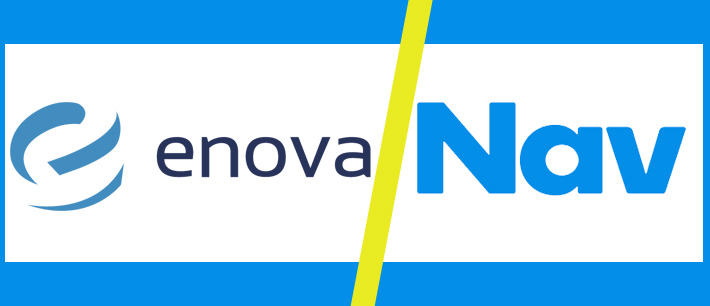 Intelligent financing platform Nav has announced an expanded partnership with small business lender Enova, bringing a mass amount of data to the X’s and O’s of small business financing approvals and funding processes of companies like OnDeck and Headway Capital, subsidiaries of Enova.
Intelligent financing platform Nav has announced an expanded partnership with small business lender Enova, bringing a mass amount of data to the X’s and O’s of small business financing approvals and funding processes of companies like OnDeck and Headway Capital, subsidiaries of Enova.
According to a joint press release, the move will create the first two-sided open marketplace in small business lending.
“Two-sided means we are bringing together both the demand and the supply,” said Greg Ott, CEO of Nav. [Nav] is the platform in the middle which allows small businesses to compare their options using the real data that the supplier, say lenders like Enova, use so that the small business owner can understand what they qualify for before they apply.”
As the head of a company that uses the value of data as a business model, Ott spoke about the harvesting of such data in ways that’s mutually benefits all parties.
“It’s all permissible, part of the desire for a lot of companies to get more data is you have to have a value proposition for small business owners to share their data,” said Ott. “Because Nav allows you to compare your options, we connect three commercial bureaus, we connect two personal bureaus, and then we connect the bank accounts so we can see the cash flow data. In certain cases, we may connect with merchant processing data, accounting data, and other data sets that the small business owners connect into our platform.”
While data will provide the merchant with options on different types of financing, the lenders also have a benefit in leveraging data provided by merchants to Nav from a marketing perspective. By having merchants input their own information, Enova and its subsidiaries like OnDeck and Headway Capital can offer those potential borrowers ‘instant funding’.
“I think [instant funding] is something that Enova has tried to do for a long time,” said Jim Granat, Head of Enova SMB. We’re trying to make things where the access to capital is as effortless as possible for the hard working Americans or business owners. We try really hard to take that approach in the way we design our product because in today’s world of ‘always online’ expectations for business owners, we want to provide the type of experience that allows them to have certainty, if it’s at all possible, as fast as they can.”
Granat stressed that effortless access to capital for merchants is the best way to differentiate one funder from another when trying to lend a small business money.
“An effortless experience allows [merchants] to know what they can do for their business as well [lenders] being able to capture the different business owners’ attention at the moment that they need it.”
FDIC Chair Says Community Banks are the Backbone of SMB Lending
February 4, 2022 In a Bipartisan Policy Center forum, outgoing FDIC Chairperson Jelena McWilliams spoke on the future of small business lending post-pandemic. According to her, the future of the industry isn’t in brokering different types of products, but rather merchants relying on community banks to develop and provide interpersonal relationships with businesses who are seeking access to capital.
In a Bipartisan Policy Center forum, outgoing FDIC Chairperson Jelena McWilliams spoke on the future of small business lending post-pandemic. According to her, the future of the industry isn’t in brokering different types of products, but rather merchants relying on community banks to develop and provide interpersonal relationships with businesses who are seeking access to capital.
“Small business lending, which is especially important to community banks, will continue to grow,” said McWilliams. “We monitor these developments through our call report data, and we report it on a quarterly basis. Community banks are a real player in the small business lending space. They are a key resource to small businesses needing credit, they are in a niche area. In most cases, they are more successful lending to small businesses than larger banks.”
McWilliams referenced a study that was published by the FDIC in 2020 dubbed the ‘FDIC Community Banking Study’ that found community banks were playing a much larger role in small business lending than larger banks. According to the study that McWilliams referenced, 36% of small business loans are written by community banks; more than double their share of the industry’s total loan products, which is around 15%.
It seems to show that the belief of regulators is that smaller banks can leverage their size to put a face to the loan. Speaking about fintech and its impact on the lending space, McWilliams stressed that a well-rounded financial product has to have a face to it.
“That personal touch community banks bring to the table is what allows them to be really good in this space, and to actually expand relationships between banks and borrowers. So I think that small business lending today I think they are in a very good place.”
McWilliams concluded her comments on the state of small business lending in a reflection of the overall economy, drawing a connection between the financial health of small businesses and the overall economy post-pandemic.
“Of course, you can never have enough credit or capital to have a vibrant economy and more is better as long as its safe and sound and underwritten well, but I would say that for all the concerns we had at the beginning of the pandemic with so many small businesses not being able to survive and shutting their doors down, we are actually on a really good trajectory in small business lending at this point in time.”
Latin Financial Launches First Lending Podcast in ‘Spanglish’
February 4, 2022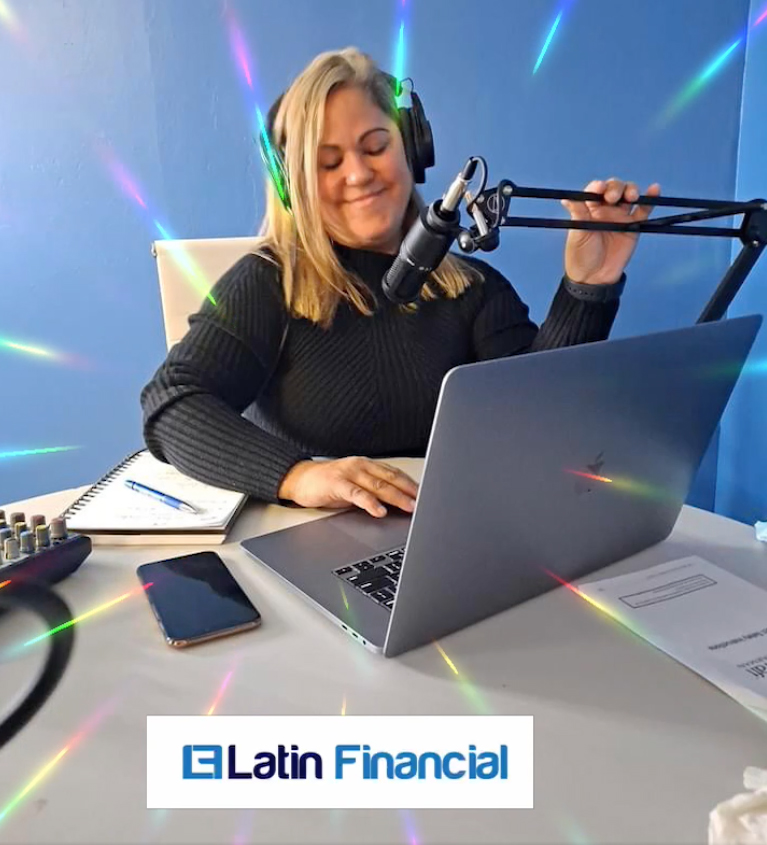 In an inaugural move for small business financing this week, Latin Financial launched the first ‘Spanglish’ podcast for funders, lenders, merchants, and brokers titled the Latin Financial Podcast. Hosted by the company’s CEO Sonia Alvelo and co-hosted by Underwriter Ruth Alustiza, Latin Financial hopes to create an open forum of discussion and education about how Latino-owned businesses can get access to different types of financial products; all in two different languages.
In an inaugural move for small business financing this week, Latin Financial launched the first ‘Spanglish’ podcast for funders, lenders, merchants, and brokers titled the Latin Financial Podcast. Hosted by the company’s CEO Sonia Alvelo and co-hosted by Underwriter Ruth Alustiza, Latin Financial hopes to create an open forum of discussion and education about how Latino-owned businesses can get access to different types of financial products; all in two different languages.
“It was so much fun, but so scary,” said Alvelo, when asked about her experience recording on her first episode. “[I’m doing this] to make sure the merchants and clients have and will have the right information, I know I’m breaking barriers of languages, it’s the right thing to do.”
While still in its infancy, Alvelo is expecting the show to take off. Her target audience among merchants is a growing group of Latino-owned small businesses who have been historically underbanked. Offering episodes in both English and Spanish, the podcast hopes to not only educate the show’s listeners on how small business lending works, but also hopes to serve as a crash course in either Spanish or English for those who are already members of the non-bank finance world.
The show will have funders, lenders, merchants, and staff of Latin Financial on as guests, according to Alvelo. The show has begun a stream of content that will be released on a regular basis that is being uploaded on platforms like Apple Podcasts, Google Podcasts, and Spotify.
“We are doing one episode per week, said Alvelo. “We’re going to add guests, they are already asking me to attend, and lenders. I’ll be doing back and forth, Spanish and English for sure.”
Alvelo seems confident that the show can separate itself from the countless other finance podcasts that exist. With a dynamic of two languages, two cultures, complex financial products, and revolving guests, it seems as if Latin Financial has discovered a niche in the business media space. “The audience can listen in Spanglish about what we do to help business owners in the United States and Puerto Rico. It’s a new way to stay informed, get educated on updated programs in the financing Industry, all in two languages,” Alvelo said. “It’s Spanish and English, equals Spanglish!”
A weblink to the show can be found here.































